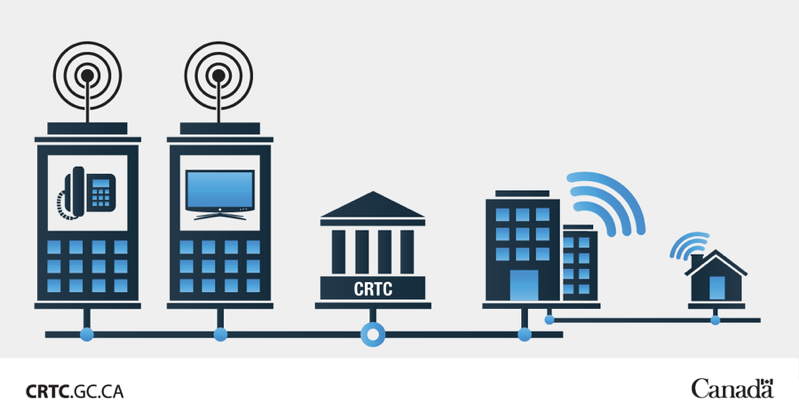
CRTC Denies Quick Decision on ‘Big 3’ Fibre Network Sharing
The Canadian Radio-television and Telecommunications Commission (CRTC) has rejected a request by Bell and several independent internet providers for an expedited decision that would block incumbents from using competitors’ fibre networks to deliver services.
According to CRTC secretary-general Marc Morin, the petition, filed in March, lacked sufficient evidence of irreparable harm, reports The Canadian Press.
This coalition, which includes TekSavvy, Eastlink, Cogeco, and the Competitive Network Operators of Canada (CNOC), argued that allowing Canada’s ‘Big 3’ telecoms, including Bell, access to each other’s fibre networks might jeopardize the survival of independent providers. But Morin stated in his response that the evidence presented was not good enough to substantiate these claims.
In November, the CRTC had issued an interim ruling requiring Bell and Telus to provide competitors access to their fibre networks in Ontario and Quebec within six months. This decision aimed to increase internet competition in these provinces.
Despite the temporary nature of this rule, pending a broader review of internet competition, Morin emphasized the potential benefits of increased competition for Canadian consumers, suggesting that these outweigh any short-term harm that might arise until the commission’s final ruling, expected by the end of this summer.
Bell has strongly opposed the interim decision, claiming the CRTC’s direction could discourage further investment in its network. Following the ruling, Bell announced a significant cut in network investment and job cuts, blaming the CRTC for its decisions.
“Allowing incumbents to resell on each other’s networks will permanently distort Canada’s internet market in large carriers’ favour and will come at the expense of smaller internet providers,” said Bell spokeswoman in a statement on Tuesday to The Canadian Press.
“We hope the CRTC’s final decision this summer will create incentives for Bell to continue investing in network expansion that will connect more Canadians to high-speed fibre internet wherever they live,” said Bell.
“By declining this request and allowing large carriers to resell on each other’s networks and bundle wireless services, Canadians will actually see less competition for high-speed internet services,” said CNOC president Paul Andersen.
TekSavvy vice-president of regulatory and carrier affairs Andy Kaplan-Myrth said, “The Big Three have an unfortunate history of predatory pricing to undercut wholesale competition.”


